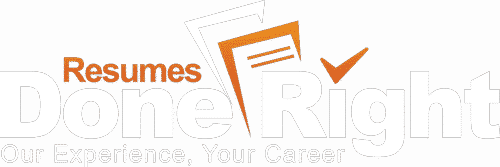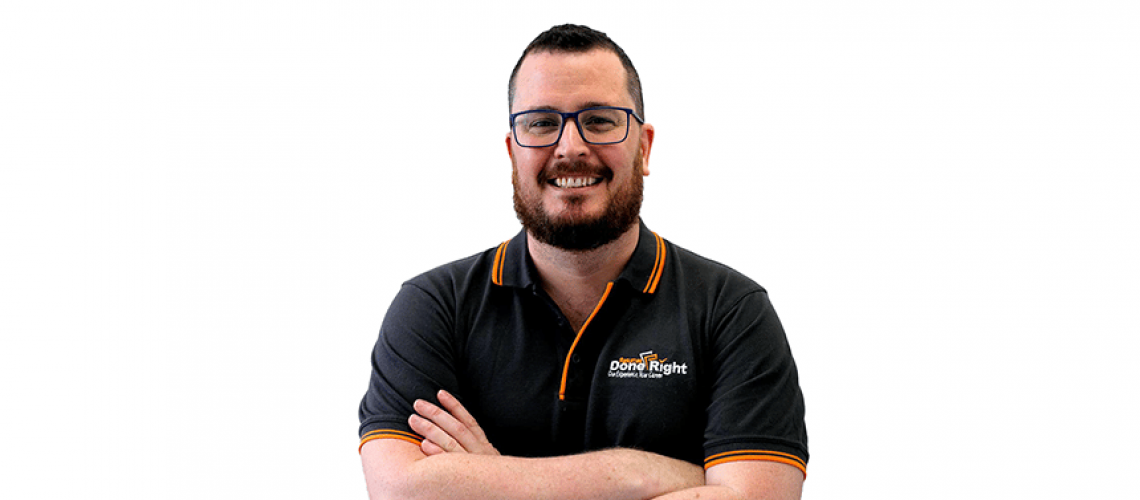It’s a brisk 16C day in Adelaide, the newest location of Resumes Done Right, but the sunlight is filtering through the window, illuminating the bookshelf mixed with MBA textbooks, and fantasy and sci-fi novels. Jimmy offers me a coffee while his 3 pugs, led by Burger, offer me the kind of attention only s dog can. I’m impressed by Jimmy’s computer set-up, one large, curved monitor that puts my little laptop to shame. “Don’t get me wrong,” he says, “if you write your resume in pencil on a napkin, you won’t be getting an interview, but pretty resumes don’t get jobs. No one gets hired because of their font choice. Quality of content and alignment of the capability to requirements of the role are everything.” I laugh and suggest it’s a good thing he has such an impressive setup rather than a stack of napkins. We settle in on the couch, coffees in hand, and get down to business.
Jimmy is a jovial and optimistic person. He’s got a quiet confidence about him that sets you at ease almost immediately. “I’ve seen a lot of resumes designed in apps like Canva or Adobe Photoshop. Is there a time and place for these types of resumes?”
“99.9% of the recruitment industry and a significant proportion of all other businesses are using Applicant Tracking Systems (ATS) to manage the high volume of applicants currently applying for work. If your resume is in any format other than MS Word, you significantly decrease your chances of being seen by the Recruiter, HR Consultant or Hiring Manager. As I said before, pretty resumes don’t get jobs.”
I take a sip of my coffee and ask, “What’s an interesting fact about resumes or the hiring process that many people will be shocked to learn?”
“95-97% of all applications don’t make it past the first 5 seconds. Don’t bury important information about yourself at the end of your CV or diluted by data, not of interest to the person reading your resume.”
“Wow!” I am truly shocked by those figures. It’s no wonder so many people are struggling to find work these days despite employers insisting they’re hiring. “So, is that partly why you left the world of corporate hiring management?” I ask. He pauses for a moment and explains, “I left corporate hiring manager and recruitment roles because I felt I had more to offer the 199+ people who didn’t get the job, than the 1 person who did.” It makes sense that he would venture directly into resume writing when he saw thousands of resumes throughout his career and was responsible for selecting the winner. The experience left him feeling disillusioned, however, “I was getting frustrated when business demands such as speed of placement resulted in less than perfect candidates being placed in roles because the best candidates made it too hard or too time-consuming to put them forward because of the work required to get their resumes into the format the referring recruiter requires. This is because the discovery process required to establish fit simply took too long when great candidates weren’t great at articulating their value in their CV.”
After working in recruitment for 7 years, Jimmy left his corporate management role in 2011 to join commercial recruitment businesses like Hays, IPA, Transparency IT and others, which then led to the beginning of Resumes Done Right opening in 2016. Boasting a 5-star score on Google with over 290 reviews to date, Jimmy and his team have helped over 3500 jobseekers to land their next job. “My favourite part is when our clients have that lightbulb moment and understand that their CV isn’t their biography, but a business case/performance report to their new manager. It’s a super rewarding experience” he explains. The trade-off? “Knowing that people have had to accept opportunities beneath their ability or condition requirements because they don’t understand this fundamental aspect of employment.” So, what is the biggest challenge jobseekers face when writing an effective resume, you may wonder. According to Jimmy, it’s “Understanding that your resume isn’t about you, it’s about the reader and how you solve their problem better than anyone else. Objective information vs. subjective and the difference in value between them. Understanding that when you write something about yourself, often the most important information is implicit to you, and not explicit to any other reader…and so much more.”
It’s no secret that the world is still reeling from COVID-19, so I ask Jimmy what employment trends he sees now, especially given recent events.
“Around 2012, the mining industry in WA collapsed and a lot of permanent staff were laid off/made redundant, when the industry started to recover, full-time employment was rarely offered. We saw lots of labour-hire, casual and contract work being offered. This was due to market uncertainty on behalf of businesses of all sizes making them want to maintain a flexible workforce. We are seeing the same thing 10 years later in response to COVID19. It’s tough for the workforce to be struggling with income uncertainty and it will remain with us for a while. Just remember it will end. Things will get better. How can you improve your income certainty in the meantime? Well, by hiring a resume writer, taking advantage of career counselling, or entering the gig economy.”
“You mentioned the gig economy. The gig economy has had quite a boom in recent years in response to COVID-19 with workers preferring to work from home or become couriers or drivers for companies like Uber or Australia Post” I say. “Do you still see that trend rising?”
“Absolutely, though there is an equal number of business owners seeking to return to employment due to the impacts of COVID. This is an opportunity and people who are prepared to take their destiny into their own hands are having a great time of it at the moment. Chaos breeds opportunity after all.”
Burger (the pug) begins to snore loudly next to me and it’s already time for a second cup of coffee. The conversation flows so easily that it continues while the next pot is brewing and the little pups wrestle in the kitchen. I ask Jimmy how the pandemic affected his business, if at all. “We were very lucky to be positioned to really help people through the employment uncertainty brought about by COVID. Our team has grown from just me to 4+ staff all working flat out every day to help people with feeling confident with their applications and achieving positive results.” I take a moment to absorb that information. It’s nice to hear a COVID success story in a landscape of so many challenges. As we return to the couch, and Burger, I question, “What does a normal day look like for you?”
“Well, lots of coffee to start with. I drink this while I’m chasing our hounds out of the house, we have 3 pugs currently. Then to the computer. An hour or so of responding to emails, messages, and calls, then into consultations. Lunch and chase the dogs around the backyard for a while, then, if I can carve out some time, I do any chores or errands that need doing. After a small break, it’s back to the PC to wrap up a few more consultations and resume drafts.”
“Do you have time for fun between all of the consultations, errands, and drafts?”
Jimmy laughs, “At the weekend I go cycling with a mate, cook a lot of low and slow BBQ and explore restaurants and pubs around the state as we’ve just relocated to Adelaide.”
As the sun begins to move across the room, indicating high noon is near, I ask the burning question on everyone’s mind. “Be honest, do we really need cover letters?” Jimmy catches the cheekiness in my question but answers it with an air of seriousness.
“Honestly, yes. The “why” is probably different to most people’s understanding. Your cover letter is likely to be read about 40% of the time. That’s hardly an inspiration to put your heart and soul into a cover letter. That said, the people who do like to read cover letters feel real value from a well-written cover letter. For the right recruiter, HR Consultant or hiring manager, it can even be a make or break. So, my rule of thumb is: ALWAYS write a good, tailored cover letter… But, never put something important in your cover letter that isn’t also in your resume as it might get missed by the 60% of readers who go straight to your CV instead.”
Appreciating that really wise piece of advice, I press him for another tidbit on the future of resumes and hiring practices. After much thought, he explains,
“The fundamental purpose for a good resume and an excellent hiring process is to find someone into whom investing will deliver the required commercial or objective outcomes the business needs and is unlikely to change significantly in the future. We will continue to see a change in how we do this due to the continuing digital evolution. I foresee a time where, rightly, or wrongly, employers and employees will engage with each other through an Amazon or eBay-style market. It’s up to us, employers, and applicants alike to ensure that this is fair and equitable to all involved.”
I thank Jimmy for his time this morning and the amazing coffee. As I’m getting ready to pack up my laptop, I can’t help but ask him one final question. What is one thing he wishes he could change about the hiring process/industry as it stands today? Jimmy’s eyes light up with that optimism he is filled with. I recommend any manager, current or aspiring to take in these words.
“I wish managers would start, genuinely, to build their employees’ understanding of their commercial value. This is not just about KPIs, SLAs and other targets, this is about how those targets and each employee’s actions build a successful business. This builds both personal accountability along with improved job satisfaction. Improved job satisfaction decreases staff turnover and unplanned absences and performance, which in turn makes for a better business, which in turn allows that business to treat (and pay) their staff better. As Richard Branson is fond of saying: Train your staff well enough to leave, treat them well enough that they don’t.”
For help landing your next job opportunity, contact Jimmy for a free resume review and consultation today!

